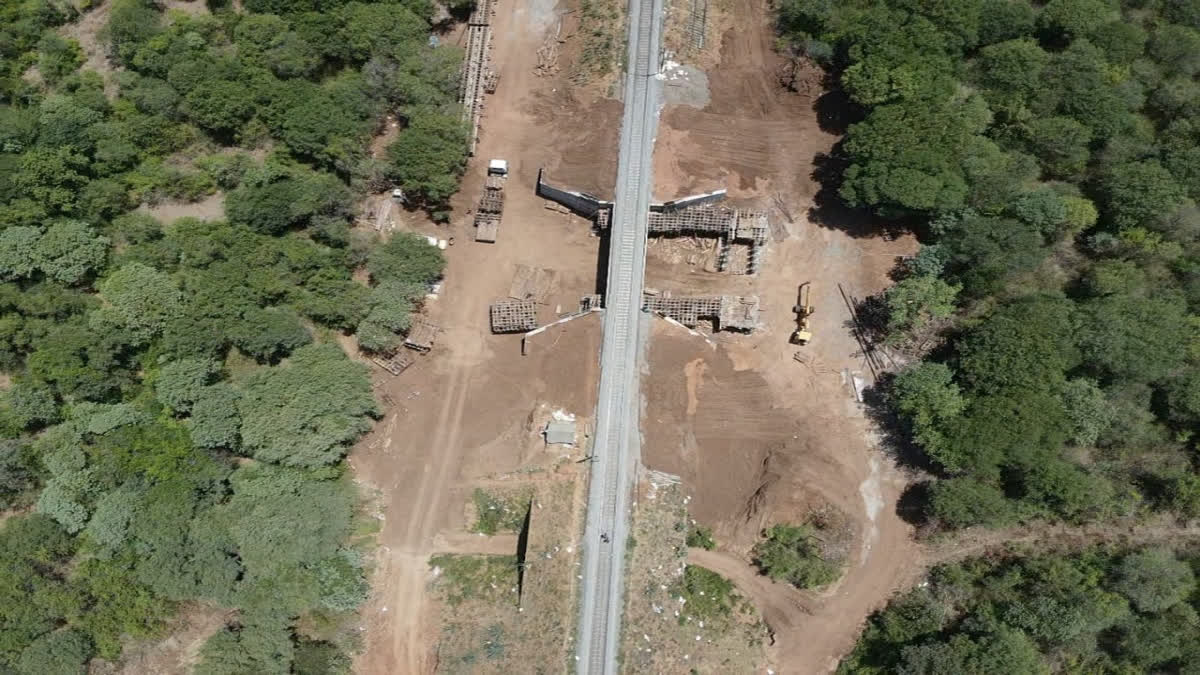Coimbatore: A footage, which captured movements of a male elephant from the newly constructed tunnel on the railway line between Tamil Nadu and Kerala, cheered conservation officials and foresters in the hope that authorities' experiment to dissuade the animal from taking railway track routes has borne fruit.
The fact that wild elephants have started using the safe man-made route is considered a success for the joint efforts of the Forest Department and the Indian Railways. Coimbatore Forest Conservator Ramasubramanian said that it is heartening that elephants have started passing through the tunnels set up by the Forest Department. Moreover, if the elephants travel through this tunnel avoiding the railway tracks, the death of elephants in train accidents can be prevented. He also said that steps will be taken to find places where elephants can safely roam around without being hit by trains.
The male elephant crossed a tunnel at about 3 a.m. on Wednesday. A large number of trains run daily between Kerala and Tamil Nadu via Coimbatore. Two trains run from Madhukarai area of Coimbatore to Vallaiyar in Kerala state through the same forest route. The first railway line of this is the A line of 17 km. The second railway line B line is 23 km.
When wild elephants cross the railway tracks, train collisions and deaths take place frequently. The wild elephants are often killed due to train collisions on the railway line from Valaiyar to Palakkad in Kerala. In the last 15 years, 11 wild elephants have died in six train accidents.
Also read: World's oldest Asiatic Elephant 'Bijuli Prasad' passes away at 90, ending a remarkable era
To prevent the death of wild elephants in train accidents, the railway administration and the forest department have taken various measures and advised train drivers not to run the trains at high speed on the railway tracks adjacent to the forest areas.
In this case, in order to detect the movement of elephants, the forest department and the railway department jointly installed thermal surveillance cameras on railway tracks. Also, to prevent elephants from being hit by trains, environmentalists demanded that tunnels should be constructed where elephants cross railway tracks.
Pursuant to the request, construction of the tunnel was carried out at a cost of Rs 7.49 crore on behalf of the Palakkad Railway Division. Accordingly, on the second route, B Line, an 8-meter high and 18-point 3-meter wide tunnel was constructed between Madhukarai - Etimadai railway stations.
The forest department said that the construction of the new tunnel will make it easier for elephants to cross the railway tracks through the tunnel. Also, Tamil Nadu Forest Department Secretary Supriya Sahu and Tamil Nadu Forest Department Chief Forest Conservator Srinivasa Reddy inspected the flyover works last week and asked the officials to use thermal cameras there. Ramasubramanian also said that since the elephants help other elephants to follow this path in the future. Elephants generally do not change their usual routes.
Also read: Elephant conservation: India still has a long way to go, says Indo-Canadian biologist



